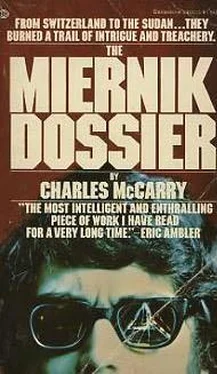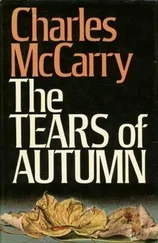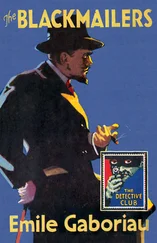“We’re going skiing as soon as we have some hot chocolate.”
I then remembered that we had agreed, near the end of a second carafe of strong Anstrian wine the night before, that we would do some dawn skiing. There is still snow on the Valluga, the high mountain behind our hotel, and it’s possible to have a run down from the cable car station before the sun is too high.
By the time we got downstairs, Collins had organized everything. A table in the lobby was laid with hot chocolate and biscuits, and four pairs of hotel skis leaned against the wall. We found boots that more or less fitted, and went to the cable car station. We rode up with the cooks and waitresses of the mountaintop café. The valley was still in shadow, but as we rose in the cable car so did the sun; the first pink light touched the snowfields and the meadows and the windows of the musical comedy houses with their flower boxes. Miernik put an arm across my shoulders. “It makes one quite sentimental,” he said. “How could such a landscape produce Adolf Hitler?” He spoke in German so that our fellow passengers would be certain to understand. They turned their fascinated gaze from Kalash, who had drawn up one bare black leg and dozed off standing on the other leg like a stork, and stared in unison at Miernik.
At the top we inquired about the ski paths and chose the longest; there are no tows at that height, so it’s necessary to walk the rest of the way down the mountain when you come to the end of the snow. I paired off with Kalash; he is a fine skier, and I did not want to spoil the experience by having to help Miernik down the path-or to listen to him quite so early in the day. Collins, divining my purpose, kicked his feet into his bindings and pushed off first down the long straight run. Miernik followed him, arms flailing, thick body tipping from side to side as he tried to keep his speed down. I waited for five minutes, hoping that would be time enough for him to get far ahead of me, and started down.
The path turns gently on the breast of the mountain, so that it covers a couple of kilometers. It’s a lovely run, with other snowy peaks all around backlit by the sun; the snow was crisp, although there were patches of ice in the shadows of several big rocks. About halfway down I came upon Miernik; he seemed to be all right, leaning on his poles by the side of the path, so I went right by him. Far below I saw Collins dropping down the mountain and a moment later heard Kalash shout something to Miernik. The snow ran out abruptly, but you could see perfectly, so there was plenty of time to stop. Collins was waiting for me with his skis already off when I got to the end. Kalash pulled in a moment after I did. No sign of Miernik. Minutes went by. “Let’s not wait.for the silly bastard,” Collins said, “he’s probably decided to walk down the steep part.”
Collins has not been in one of his better moods since the beginning of the trip. He is pleasant enough to Kalash and me, but he barely speaks to Miernik. I have an idea that this has something to do with Ilona Bentley. In the car yesterday, Miernik asked some innocent question about her and Collins flicked him with a look of contempt and ostentatiously changed the subject. Now, with his skis on his shoulder, he began to walk down the dirt path that leads to the bottom of the mountain.
At this moment, Miernik came into sight above us. His poles were tucked under his arm and he was moving very fast. I swore and Kalash watched impassively as Miernik tried to snowplow, lost control of his skis, dropped one of his poles, and went by us right off the edge of the snow. He flew over a patch of jagged gravel and landed on his shoulders at fifty miles per hour on a small meadow of alpine grass. He lay quite still about a hundred feet below us. “It looks as if he’s broken his bloody neck, doesn’t it?” Kalash said calmly.
By the time we reached him he was up on all fours, feeling in the grass for his glasses. Without the spectacles his face had a naked look. Blood oozed from a scrape on his cheek, and a dribble of pink saliva ran from the corner of his mouth. He was breathing hard. “No matter,” he said, “I have another pair of glasses in my bag.” Collins reached the scene at this moment, out of breath from his scramble up the steep path. “Miernik, you clumsy ass,” he cried, “what do you think you’re doing?”
Miernik, still down on his hands and knees, shook his head from side to side, looking more than ever like a wounded animal. It was almost impossible to feel sympathy for him. If ever a man was born to be injured it is Miernik; it occurred to me that this unconscious masochism is his essential quality. It makes it impossible to like him-or to abandon him. Even when he is all buttoned up in one of his black suits, walking through a quiet park surrounded by harmless children and little dogs on leashes, you have the feeling that something terrible is going to happen to him. When it happens, you find yourself nodding your head-you knew it all along. “You’d better feel his bones,” Kalash said. “He may have broken something.”
Miernik turned his face toward Collins; we hadn’t been able to find his glasses, and no doubt he saw nothing but a blur dressed in a red sweater. It is just as well that he could not see the expressions on any of our faces. Collins’s was a mask of disgust. “I’m sorry to say that I have not killed myself, Nigel,” he said. “Yes, I suppose you are, Collins said. “I’ll get some snow for your face; you’ve got dirt in those cuts.”
Miernik was able to walk. He stumbled down the mountain path between Collins and me, leaning heavily on our arms. He was sweating heavily and trembling. Collins held him upright in cold silence, and when we got to the village, he turned away and started back to the hotel. Miernik got little more sympathy from the local doctor, who seems to have been driven into a state of perpetual annoyance by the stupid accidents of skiers. “If you cannot deal with the mountain, you should not be on the mountain,” he said, poking fingers into Miernik’s stomach and manipulating his limbs. The doctor was still in pajamas. He found a dislocated shoulder and some cracked ribs and bandaged them. “Also,” the doctor said, as he pocketed his fee, “you should not have walked in those ski boots. It ruins them.”
At the hotel we found Nigel and Kalash sitting in the sun on the terrace with the remains of their breakfast in front of them. Miernik sat down heavily, his arm in a sling and the left side of his face painted bright red with Merthiolate. He groaned. “I’m not going to be very comfortable in the car,” he said, “but that can’t be helped.” Kalash asked about Miernik’s injuries; Collins picked up a newspaper and began to read it. Miernik, refusing to eat, stumbled away. When he was out of earshot, Collins put down his paper. “Really, Paul,” he said. “How on earth could he do such a thing?”
I shrugged. “We all know he can’t ski,” I said. “Why did we let him try it?”
“You realize the whole trip is going to be one thing like this after another, don’t you?” Collins said. “We’ll spend all our time helping him across the street and bandaging his wounds.”
Miernik returned, wearing his spare glasses. He had managed somehow to get into a shirt and tie, and he wore a pressed suit coat, the empty sleeve draped over his bad shoulder. Collins said, “I’ll pack for you, Miernik, and have your bags brought down. We ought to leave in half an hour.”
Miernik nodded. I ordered some tea for him and he began to drink it clumsily, sitting far back from the table because of his sling. When we were alone he glanced around him, squealing the legs of his chair on the floor as he turned stiffly to look behind him, and began to talk.
Читать дальше












